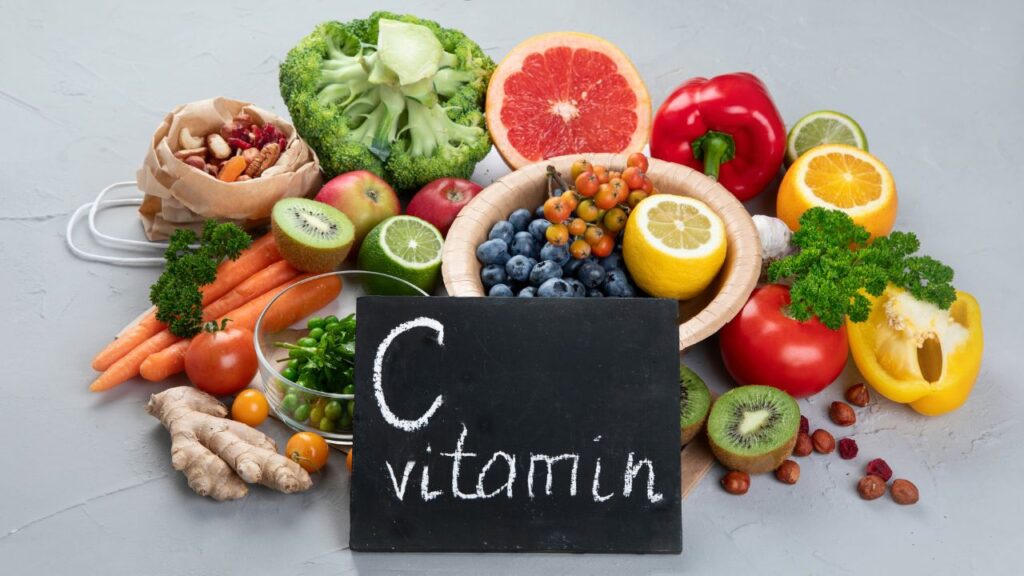Kick Off 2024 with a Bang: Try These Natural Menopause Detox Methods for Better Health!

Hey ladies, welcome to 2024 – it’s a fresh start and a fantastic opportunity to focus on your health, especially if you’re going through menopause or getting ready for it. In this piece, We’re excited to share some great natural detox methods that can really help you feel your best during menopause.
In this blog, we’re diving into the best natural ways to detox during menopause. These aren’t just about cleansing; they’re about supporting your body through this time. We’ll talk about diet, lifestyle, and some holistic practices that can really make a difference in managing menopause symptoms. By the end of this, you’ll have a solid plan for a menopause detox that fits right into your life.
So, let’s make 2024 a fantastic year. I’m here to guide you through understanding and implementing a menopause detox that can really change the game for your health. Stick around, and let’s explore these life-changing strategies together!
Heads Up to Our Readers:
Before you continue to dive into this comprehensive guide, we want to give you a little heads up: this is going to be a detailed and lengthy read. We’ve packed this blog with valuable insights and practical tips for your menopause detox journey, and we believe it’s worth your time, especially if you’re navigating the complexities of menopause.
We understand that everyone’s time is precious, so feel free to read at your own pace. Whether you choose to absorb it all in one go or break it down into smaller reading sessions, what’s important is that you get the most out of the information provided. Each section of this blog is designed to empower you with knowledge and actionable steps to enhance your health and well-being during menopause.
And if you find this information helpful, we encourage you to share it with friends, family, or anyone in your circle who might benefit from these menopause detox tips. Spreading knowledge is a powerful way to support each other, especially when it comes to health and wellness.
So, settle in, and let’s embark on this informative journey together. Your commitment to reading through could provide you with valuable tools and insights for a healthier, more balanced menopause experience. Happy reading!
1. Choose Organic Foods

Choosing organic foods is a key strategy in a natural menopause detox, and its benefits are rooted in both science and practical health practices. Organic produce is cultivated without the use of harmful chemicals like pesticides and synthetic fertilizers. This approach not only benefits the environment but also reduces your exposure to potentially harmful substances. A study published in the journal “Environmental Health Perspectives” found that consuming organic foods significantly reduces exposure to pesticide residues. The study highlighted that organic produce had 30% lower pesticide residues compared to conventional produce. During menopause, when the body is more sensitive to toxins and hormonal imbalances, reducing pesticide exposure is particularly beneficial.
Research has also indicated that organic foods can have higher levels of certain nutrients. For example, a study in the “Journal of Agricultural and Food Chemistry” found that organically grown berries and corn had 58% more antioxidants and up to 52% higher vitamin C levels compared to conventionally grown produce. Antioxidants are crucial for combating oxidative stress, which is particularly relevant during menopause.
Practical Examples
- Fruits and Vegetables: Opt for organic apples, strawberries, grapes, and leafy greens like spinach and kale. These are often on the list of produce with the highest pesticide residues when grown conventionally. By choosing their organic counterparts, you reduce toxin intake and increase your consumption of beneficial nutrients.
- Dairy and Meat Products: Organic dairy and meat products come from animals that are not given antibiotics or growth hormones. This is important as hormone and antibiotic residues in food can affect your body’s hormonal balance. Organic meat and dairy often have higher levels of omega-3 fatty acids, which are beneficial for heart health, a concern for many women during menopause.
- Whole Grains: Opting for organic whole grains like quinoa, barley, and oats can also be beneficial. These grains are less likely to be treated with pesticides and often have a better nutrient profile, including higher levels of certain minerals and antioxidants.
Incorporating organic foods into your diet during menopause can be a powerful step in a natural detox process. By reducing exposure to harmful chemicals and increasing nutrient intake, you support your body’s natural ability to balance hormones and maintain overall health. While organic foods can be more expensive, focusing on key items like fruits, vegetables, dairy, and meat can make this approach both practical and beneficial. Remember, every small step towards an organic diet can contribute to a healthier menopause experience.
2. Increase Water Intake

Increasing water intake is a simple yet effective strategy for enhancing health during menopause. It supports skin health, improves kidney function, and aids in the overall detoxification process of the body. By adopting practical methods to increase hydration, you can effectively support your body through the menopausal transition. Remember, while eight glasses a day is the general guideline, individual needs may vary, especially during menopause, so listening to your body and adjusting your water intake accordingly is key.
Tips:
- Start Your Day with Water: Begin each morning with a glass of water. This helps to rehydrate your body after a night’s sleep and kickstarts your metabolism for the day.
- Infused Water for Variety: To make water intake more enjoyable, try infusing water with natural flavors like cucumber, lemon, mint, or berries. These not only add a refreshing taste but also contribute additional antioxidants and vitamins.
- Hydration Apps or Reminders: Utilize technology to stay on track. There are numerous apps available that remind you to drink water throughout the day or you can set regular reminders on your phone.
- Measure Your Intake: Use a marked water bottle to keep track of your water intake. This can help ensure that you’re drinking more than the standard eight glasses a day.
- Herbal Teas: Incorporate herbal teas into your daily routine. They are a great way to increase your fluid intake and can also provide additional health benefits, such as relaxation and aiding digestion.
3. Incorporate More Greens and Seaweed

Greens and seaweed are natural powerhouses that are more than just regular veggies; they’re like your personal health allies during menopause. Leafy greens such as spinach, kale, and Swiss chard are not only nutrient-dense but also come packed with antioxidants. These antioxidants are key players in helping to alkalize your body. Why is this important? Well, an alkalized body means a happier and more efficient liver, and a healthy liver is essential for filtering out those unwanted toxins that can affect your well-being during menopause.
But the benefits don’t stop there. These greens also support your liver – the organ that’s at the forefront of the detoxification process. A well-functioning liver is crucial for efficiently processing and eliminating toxins from your body, and these leafy greens are just the right fuel it needs to do its job effectively.
Now, let’s shift our focus to seaweed. This isn’t just something you find at the sushi restaurant; it’s a nutrient-rich superfood, especially beneficial for menopause detox. Seaweed is an excellent source of iodine, a mineral that’s vital for thyroid health. And your thyroid, in case you didn’t know, is a key player in maintaining hormonal balance, especially during menopause. An imbalance in thyroid function can lead to a host of menopausal symptoms, so keeping it healthy is crucial.
Incorporating seaweed into your diet can be both easy and delicious. You can add it to your salads for a nutrient boost or get creative and prepare a seaweed wrap. Seaweed snacks are also a great option for a quick, healthy bite. These simple dietary additions can make a significant difference in your menopause detox journey, supporting your body in maintaining hormonal balance and overall health.
So, don’t overlook the power of greens and seaweed in your menopause detox plan. They’re not only nutritious but also support key bodily functions that are essential during menopause. By making these foods a regular part of your diet, you’re taking a big step towards a healthier, more balanced menopausal phase.
4. Leverage the Power of Vitamin C

Vitamin C acts like a detox superhero, primarily due to its antioxidant properties. Antioxidants are crucial in combating the oxidative stress that can increase during menopause. Vitamin C, in particular, plays a pivotal role in the synthesis of glutathione, one of the most important antioxidants in the body. Glutathione directly aids in the detoxification process within the liver, helping to break down and eliminate toxins that can be more harmful during the menopausal phase.
Starting your day with a glass of lemon water is an excellent, no-fuss way to boost your Vitamin C intake. This simple habit can kickstart your digestive system and enhance liver function, setting the stage for effective detoxification throughout the day. Lemon water is not only refreshing but also acts as a gentle liver cleanser, supporting your menopause detox efforts from the moment you wake up.
But why stop at lemon water? There are numerous other delicious and nutritious Vitamin C-rich foods that can be incorporated into your diet to further support your menopause detox. Oranges, for instance, are not only high in Vitamin C but also contain flavonoids that can improve heart health — a significant consideration during menopause. Bell peppers, both red and green, are another excellent source of Vitamin C and can easily be added to salads, stir-fries, or even as a crunchy snack. Strawberries, apart from being rich in Vitamin C, also provide additional fiber, which is beneficial for digestive health during menopause.
Incorporating these Vitamin C-rich foods into your diet can have a dual effect. Not only do they support your liver in detoxifying your body, but they also contribute to overall health by boosting your immune system, improving skin health, and reducing inflammation — all of which are important considerations during menopause.
5. Add Fiber to Your Diet

Adding fiber to your diet is another vital component of a successful menopause detox plan. During menopause, many women experience changes in their digestive health, including slower metabolism and irregular bowel movements. Fiber comes to the rescue by aiding digestion and ensuring regularity. This is crucial because regular bowel movements are essential for expelling toxins from the body. A well-functioning digestive system is key to an effective menopause detox, as it helps to prevent the buildup of harmful substances and waste in your body.
Fiber works in several ways to support your digestive health. It absorbs water, which helps to soften the stool and promotes easier bowel movements. Additionally, fiber stimulates the intestines, keeping things moving and reducing the likelihood of constipation, a common issue during menopause. But the benefits of fiber extend beyond just regularity. It also plays a role in binding to toxins and cholesterol in the digestive tract, aiding in their removal from the body. This process is particularly beneficial during menopause detox, as it helps to cleanse your system more effectively.
There are plenty of delicious and nutritious sources of fiber that you can incorporate into your diet. Whole grains, such as oats, barley, and whole wheat, are excellent options. They can be included in your meals as part of breakfast cereals, bread, and even in salads. Fruits and vegetables are also rich in fiber, with the added bonus of essential vitamins and minerals. Think of apples, berries, carrots, and leafy greens – all great choices for boosting your fiber intake.
Beans and legumes are another fantastic source of fiber. Chickpeas, lentils, and black beans, for example, can be added to soups, stews, or salads. They not only provide fiber but also offer a good amount of protein, which is beneficial for maintaining muscle mass during menopause.
Just remember that increasing fiber intake should be done gradually and accompanied by plenty of water to maximize its benefits and avoid any digestive discomfort.
6. Exercise Regularly

Regular exercise is a cornerstone of an effective menopause detox program. As you navigate through menopause, incorporating physical activity into your routine can have a multitude of benefits, particularly in aiding the body’s natural detoxification process. Exercise enhances blood circulation, which is crucial for transporting nutrients to your cells and removing waste products. Additionally, sweating during exercise plays a significant role in eliminating toxins from the body. This is particularly important during menopause, as the body undergoes various hormonal changes that can affect its ability to detoxify efficiently.
Beyond its detoxifying effects, regular exercise is instrumental in managing common menopause symptoms. Many women experience weight gain during this phase due to a combination of hormonal shifts, aging, and lifestyle factors. Engaging in regular physical activity helps in maintaining a healthy weight and boosting metabolism. Exercise also has a profound impact on mood. It stimulates the release of endorphins, the body’s natural mood lifters, which can be incredibly beneficial in combating mood swings and depression, often associated with menopause.
However, it’s important to recognize that during menopause, your body’s needs and capabilities might change. If you find regular high-intensity workouts challenging, there are plenty of alternatives that are just as effective for your menopause detox. Yoga, for instance, is an excellent option. It combines physical postures with breath control and meditation, offering a holistic approach to exercise that benefits both the body and mind. Yoga can improve flexibility, strength, and balance while also providing stress relief and a sense of calmness.
Walking is another great choice. It’s a low-impact exercise that you can easily incorporate into your daily routine. Regular brisk walks can improve cardiovascular health, strengthen bones, and enhance muscle endurance. Plus, being outdoors and connecting with nature can have additional mental health benefits.
For those who enjoy heat-based detox methods, sauna sessions can be a valuable addition to your menopause detox plan. Saunas induce sweating, which helps flush toxins from the body. They also provide a relaxing environment, which can help reduce stress and promote a sense of well-being.
Whether it’s through more traditional forms of exercise like jogging or cycling, or gentler practices like yoga and walking, staying active will not only aid in detoxification but also help you manage menopause symptoms more effectively. Remember to listen to your body and choose activities that you enjoy and feel comfortable with, as this will help you maintain a consistent exercise routine.
7. Prioritize Sleep

Quality sleep is an absolute game-changer in your menopause detox journey. Let’s face it, menopause can really throw a wrench in your sleep patterns. You might find yourself tossing and turning, struggling to get that deep, restful sleep your body craves. But here’s the thing: good sleep is essential for your body’s healing and detoxification processes. When you’re in the throes of menopause, getting enough quality sleep becomes even more crucial.
Adequate sleep plays a big role in maintaining hormonal balance. It’s during those precious hours of shut-eye that your body gets to work, balancing hormones and repairing itself. This is vital during menopause when your hormones are already on a bit of a rollercoaster ride. Plus, good sleep supports your immune system, which is key to staying healthy and keeping everything running smoothly.
But there’s more – sleep is a natural detoxifier for your body. Think of it as your body’s prime time to cleanse and rejuvenate. While you’re sleeping, your brain and other organs are actively removing toxins, a process that’s essential for overall health and particularly important for your menopause detox.
So, what can you do to improve your sleep during menopause? First, try to create a sleep-friendly environment. Keep your bedroom cool, dark, and quiet. Consider a bedtime routine that helps you wind down, like reading a book or doing some gentle stretches. Avoiding caffeine and heavy meals before bedtime can also make a big difference.
Remember, while everyone’s sleep needs are different, aiming for 7-9 hours of quality sleep per night is a good goal. If you’re finding it tough to get good sleep during menopause, don’t hesitate to talk to your doctor. They can offer advice and solutions tailored to your specific needs.
In short, never underestimate the power of quality sleep in your menopause detox plan. It’s not just about getting enough hours; it’s about making sure those hours are restful and restorative. Prioritizing sleep is one of the best things you can do for your body during this time of change.
8. Incorporate Probiotics

Incorporating probiotics into your diet is a smart move for your menopause detox plan. Probiotics are those friendly bacteria that play a crucial role in maintaining gut health. You see, a healthy gut isn’t just about avoiding stomach issues; it’s central to effective detoxification and a robust immune system. And let’s not forget, during menopause, your body is going through a lot, including significant hormonal changes that can throw your gut flora off balance.
Probiotics step in to help restore and maintain this balance. They contribute to a healthier gut environment, which is vital for flushing out toxins efficiently. This is especially important during menopause, as your body is trying to adapt to new hormonal levels and could use all the help it can get in the detox department.
But where do you find these probiotics? They’re actually pretty easy to include in your diet. Yogurt is a great source. Look for labels that mention “live and active cultures” – that’s your cue that it’s packed with probiotics. Fermented foods like sauerkraut, kimchi, and kefir are also rich in these beneficial bacteria. And if you’re not much into these foods, no worries – probiotic supplements are an easy alternative. Just check with your healthcare provider before starting any supplement, to make sure it’s the right fit for you.
Remember, taking care of your gut health with probiotics is not just a side note in your menopause detox strategy; it’s a key player. A balanced gut can make a significant difference in how you feel and how effectively your body can detoxify itself. So, give those friendly bacteria a little boost and help your body help itself during menopause.
Each of these strategies plays a vital role in supporting your body’s natural detoxification processes during menopause. However, it’s important to tailor these strategies to your individual health needs and consult with a healthcare professional for personalized advice.
